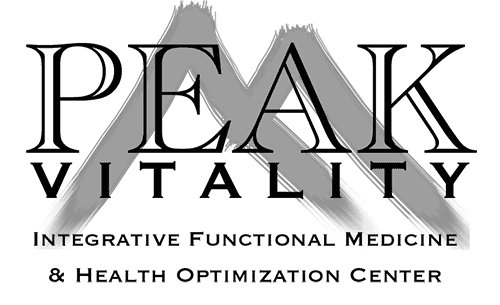Integrative Medical Weight Loss Program
Integrative medicine is essentially the medical practice that incorporates both traditional and natural approaches into treatment plans. Through this process, integrative medicine is designed to build treatment options that are fully customized to address the needs and lifestyle demands of each patient. Integrative weight loss options might include gentle or natural medications, diet planning, and exercise programs.
Phases of Integrative Medical Weight Loss
Below, we describe the three main weight loss phases included in the integrative medical weight loss treatment plan at Peak Vitality:
REMOVE PHASE: Initial Weight Loss (3-6 Months)
During this phase, patients attend an initial consultation, during which the provider will collect information, evaluate the individual’s current health and weight loss goals as well as order speciality lab work to evaluate roadblocks to metabolism. This initial phase is focused on removing unwanted fat stores.
After the patient’s initial appointment, he or she will report back to the office as scheduled in order for the medical weight loss professional to gauge the success of the treatment plan. From that point on, the patient and provider may make changes to the plan or proceed as initially planned, depending on the outcomes of each visit.
During this phase, patients can expect to experience the following:

Monthly Consultations with one of the office’s medical weight loss professionals
Metabolic Blood Labs
Collection of medical history
Access to Tracking App (including weight tracking, food tracking and nutrition education)
Nutrition Management counseling
Exercise Routine counseling
Review of medical weight loss supplements and medications
Appointment scheduling for routine check-ins
REMOVE PHASE: Initial Weight Loss (3-6 Months)

After the patient’s initial appointment, he or she will report back to the office as scheduled in order for the medical weight loss professional to gauge the success of the treatment plan. From that point on, the patient and provider may make changes to the plan or proceed as initially planned, depending on the outcomes of each visit.
During this phase, patients can expect to experience the following:
Monthly Consultations with one of the office’s medical weight loss professionals
Metabolic Blood Labs
Collection of medical history
Access to Tracking App (including weight tracking, food tracking and nutrition education)
Nutrition Management counseling
Exercise Routine counseling
Review of medical weight loss supplements and medications
Appointment scheduling for routine check-ins
REPLACE PHASE: Recalibrate and Replace
After 6 months, depending on progress, the patient will have an advanced metabolic and hormone blood panel ran to assess specialty health parameters including nutrient levels and muscle status. This is where most weight loss strategies fail. As eating habits change and weight reduction occurs, the body’s resources are often depleted and the detoxification pathways of the body are imbalanced. If proper adjustments are not made, weight loss roadblocks occur and often result in a plateau where individuals can no longer lose weight.
This assessment gives the medical weight loss professionals the ability to adjust and fine tune for continued weight loss and/or maintenance of newly attained body composition. During this phase, the provider will prescribe step-by-step maintenance instructions for the patient to follow, which may include gradually increasing caloric intake or making alterations to the patient’s exercise routine while continuing medical weight loss therapy.
RESTORE PHASE: Long-Term Wellness Care (3 Months +)
Wellness care is a crucial component of any successful weight loss program. This is because after an individual loses weight, many of them will gain it back if they’re not participating in a wellness program designed to help maintain their new healthy habits and keep working on deeper aspects of metabolism. As such, the Restore Phase involves checking in on a specific schedule with the weight loss professional managing the patient’s program.
During these sessions, patients can expect to explore their current health and wellness behaviors in order to ensure that they’re adequately maintaining the success they’ve achieved.
Components of Physician-Supervised Weight Loss
Now that we’ve covered the key phases of a medical weight loss program, let’s explore some of the plan’s components.
Weight Loss Medications
Some of the weight loss medications that patients might be prescribed during their weight loss program include the following:
Semaglutide (Ozempic, Wegovy, Tirzepapide)
Liraglutide (Saxenda)
Naltrexone (usually combined with Bupropion)
Orlistat
Vitamin B12 (injections)

Weight Loss Medications

Semaglutide (Ozempic, Wegovy, Tirzepapide)
Liraglutide (Saxenda)
Naltrexone (usually combined with Bupropion)
Orlistat
Vitamin B12 (injections)
Nutrition Management
An important medical weight loss approach involves patients following an individualized diet plan that they and their provider create based on the patient’s needs, the provider’s recommendations, and finer details such as food restrictions and allergies.
With this method, the patient is given a nutritional plan that he or she needs to follow for a predetermined length of time. As the weeks pass, the patient returns to the clinic or via virtual appointments for further evaluation. Usually, the provider will discuss the patient’s weight at each visit, discuss the patient’s experience, and make a note of any concerns or issues.
The process continues like this until the patient has lost the desired amount of weight or until another option is pursued.
Exercise Routines
Along with nutrition management, some integrative weight loss programs also include exercise routines. Though each of these components can be used as a standalone program base, the two are sometimes combined into a single treatment protocol. This way, the patient can tackle weight loss with two focuses in mind.
In situations where the patient is already maintaining ideal nutrition management alone, an exercise routine might be recommended to further the individual’s weight loss success.
Reach out to Peak Vitality to schedule a consultation with our holistic care team. We’ll evaluate all of your options as thoroughly as possible and guide you through every step of the medical weight loss process. We understand that every patient is unique and we’ll take every precaution to ensure that each step of your weight loss plan meets your individual needs.
Fri - Sun: Closed
